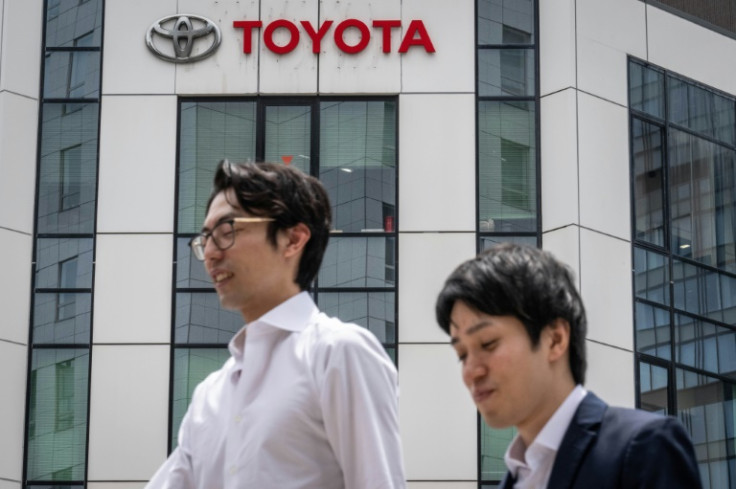
Japanese auto giant Toyota kept its annual net profit forecast unchanged on Wednesday, despite logging a 26 percent drop for the first half of this financial year.
The world's top-selling automaker said unit sales were hit by production cuts in its home market, related to a failure to fully comply with vehicle inspection standards.
In April to September, Toyota reported net profit of 1.9 trillion yen ($12.4 billion), down from 2.6 trillion in the same period a year ago.
Although its second-quarter earnings were far lower than analyst expectations, the company still forecasts full-year net profit of 3.57 trillion yen.
"We will strive to maintain and strengthen our earning power," it said in a statement.
Chief Financial Officer Yoichi Miyazaki said a boost to global production would help the company catch up.
"Our Indiana plant in the United States, which had been partially shut down, resumed operations last month and we will return to a production pace of 10 million vehicles per year globally," he said.
Unit sales fell four percent in the first half of 2024-25, partly "due to the impact of halting production to address certification issues", the company said.
In June, the Japanese government told Toyota and its rivals Honda, Mazda, Suzuki and Yamaha to stop delivering certain vehicle models domestically because of these irregularities.
The automakers insisted that the quality of their vehicles was not in question, arguing that their own testing was in some cases stricter than the official standards.
Miyazaki said Toyota had taken time to rethink its approach so the group can "prioritise safety and quality".
Toyota also said Wednesday that fluctuations in the value of the yen had caused "valuation losses in foreign currency-denominated assets".
But this factor "does not indicate an actual deterioration in business", the automaker said.
In fact at the same time "the effects of foreign exchange rates, cost reduction efforts, and marketing efforts increased operating income", it added.
Toyota lowered its annual group production outlook to 10.85 million vehicles from the previous target of 10.95 million.
The company had reported record bumper results last year, driven by strong sales of hybrid vehicles -- which combine internal combustion engines and batteries -- an area that Toyota pioneered with the Prius.







